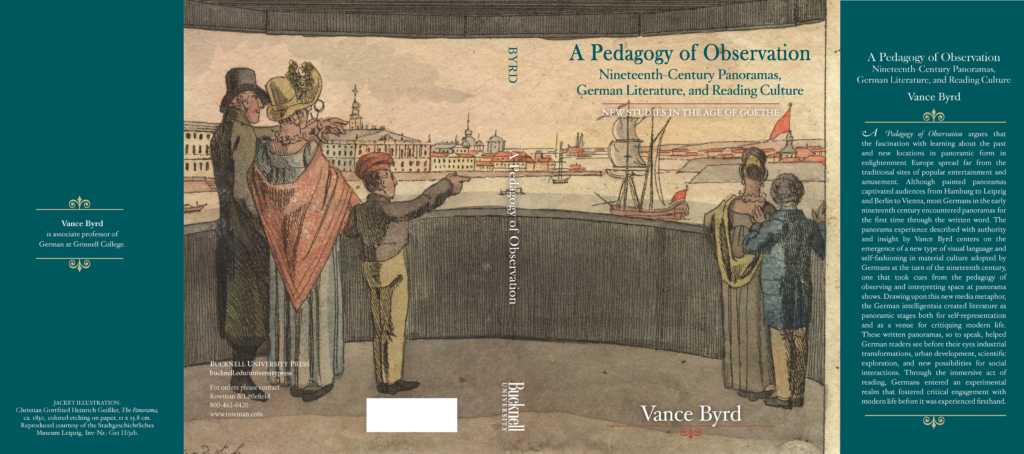We are thrilled to announce that our first edited volume of essays is scheduled to appear in July of 2020.
Play in the Age of Goethe: Theories, Narratives, and Practices of Play around 1800, edited by Edgar Landgraf and Elliott Schreiber
“We are inundated with game play today. Digital devices offer opportunities to play almost anywhere and anytime. No matter what age, gender, social, cultural, or educational background—we play. Play in the Age of Goethe: Theories, Narratives, and Practices of Play around 1800 is the first book-length work to explore how the modern discourse of play was first shaped in this pivotal period (approximately 1770-1830). The eleven chapters in this book illuminate critical developments in the philosophy, pedagogy, psychology, politics, and poetics of play as evident in the work of major authors of the period including Lessing, Goethe, Kant, Schiller, Pestalozzi, Jacobi, Tieck, Jean Paul, Schleiermacher, and Fröbel. While drawing on more recent theories of play by thinkers such as Jean Piaget, Donald Winnicott, Jost Trier, Gregory Bateson, Jacques Derrida, Thomas Henricks, and Patrick Jagoda, the volume shows the debates around play in the decades in German letters around 1800 to be far richer and more complex than previously thought, as well as more relevant for our current engagement with play. For it is here that the parameters are set that continue to guide our debates about what are good rather than bad games, or what constitutes good rather than bad practices of play.”
Also, don’t forget that GSNA members receive a 40% discount plus free shipping on our two most recent titles (or in fact any book distributed by Rutgers UP):
Ellwood Wiggins, Odysseys of Recognition: Performing Intersubjectivity in Homer, Aristotle, Shakespeare, Goethe and Kleist
Seán Williams, Pretexts for Writing: German Romantic Prefaces, Literature, and Philosophy
At rutgersuniversitypress.org, look for the tiny red shopping-cart icon next to the title, and enter the code “BUPSociety” at check-out!Are you working on a monograph or an edited volume? As always, we’d love to hear from you. Direct inquiries to the series editor, Karin Schutjer, at kschutjer@ou.edu.
Karin Schutjer, University of Oklahoma



